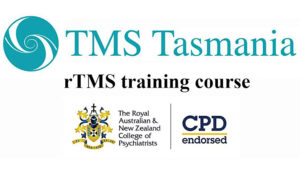The recent revelations from the RANZCP workforce survey have cast a glaring spotlight on the dire state of the mental health sector, compelling us to act swiftly and decisively. The findings, drawn from over 1200 responses across all states and territories, unequivocally unveil a landscape of chronic neglect and disregard plaguing our mental health specialists.
The statistics are chilling, painting a picture of a system teetering on the brink of collapse. A staggering 73% of psychiatrists admit to experiencing burnout within the past three years, with an alarming 78% witnessing a surge of burnout among their peers. This epidemic of exhaustion and disillusionment not only leaves our frontline healthcare providers feeling overwhelmed and undersupported but also dangerously compromises patient care. It is unconscionable that 92% of psychiatrists believe this crisis directly impacts patient care, with female practitioners particularly vulnerable.
“The concept of burnout resonates poorly with physicians: it suggests a failure of resourcefulness and resilience, traits that most physicians have finely honed during decades of intense training and demanding work.” – Wendy Dean
The root causes of this crisis are stark and multifaceted. Overwhelming workloads, chronic under-resourcing, debilitating staff shortages, and a woefully underfunded Medicare system stand as primary culprits. Furthermore, the pervasive sense of powerlessness among medical specialists in influencing governmental approaches to mental health exacerbates the issue.
“Physicians are overworked and overwhelmed with bureaucratic bullshit during most of their careers. They are trapped in assembly-line big-box clinics where they are treated like factory workers and berated for not seeing enough patients per day.” – Pamela Wible
It is imperative that we dismantle the barriers of red tape, hierarchy, and self-serving egos that impede progress within our field. The depoliticisation of healthcare delivery and the empowerment of our doctors must become paramount objectives. Psychiatrists must be adequately resourced, rewarded, and supported to ensure the well-being of both patients and practitioners.
“Moral injury… describes the challenge of simultaneously knowing what care patients need but being unable to provide it due to constraints that are beyond our control.” – Wendy Dean
We demand immediate and decisive action. The eradication of conflicts of interest, the depoliticisation of healthcare delivery, and the empowerment of our doctors must be prioritised. Failure to act not only perpetuates human suffering but also squanders taxpayer resources and endangers lives.
“The long-term solutions to moral injury demand changes in the business framework of health care. The solutions reside… in creating a health care environment that finally acknowledges the value of the time clinicians and patients spend together developing the trust, understanding, and compassion that accompany a true relationship.” – Wendy Dean
In solidarity and urgency,
NAPP


